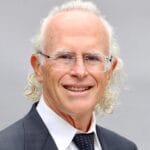Nursing home medical directors, by federal regulation (Section 483.70 (h)), are responsible for coordinating the medical care of highly complex individuals who reside in these facilities.
The recent Facility Assessment guidance from the Centers for Medicare & Medicaid Services enlists the medical director in “using evidence-based, data-driven methods that consider the types of diseases, conditions, physical and behavioral health needs, cognitive disabilities, overall acuity, and other pertinent facts” to determine the resources needed to provide care to the residents.
This critical role requires competencies in post-acute and long-term care medicine, expertise in geriatrics, and an understanding of the complex operational and regulatory environment of nursing homes. California has recognized in statute the importance of this necessary expertise by requiring certification for nursing home medical directors. AMDA -The Society for Post-Acute and Long-Term Care Medicine is home to the specialists who provide medical direction and attending physicians and advanced practice providers (APPs) providing clinical care to nursing home residents.
Unfortunately, we are learning about private equity-backed ventures replacing competent medical directors, attending physicians and APPs in nursing homes with their own team of physicians and APPs with little to no experience or expertise in medical direction, geriatrics or long-term care medicine. These stories continue to roll in, with countless examples of such episodes experienced by AMDA members across the country.
Often, this results in a lack of access for nursing home residents to competent onsite care by qualified post-acute and long-term care specialists and residents being assigned to new clinical teams without their consent. The most common reason for this abomination is a misguided attempt to drive up census and maximize revenue from skilled care, though during the pandemic, there were instances of medical directors being terminated for their efforts to reduce the transmission of COVID-19.
Medical directors do not exist to transactionally bring admissions to a facility. A 2019 AMDA resolution advocated “for medical directors to contractually be given an adequate amount of time to perform their duties, to be accountable for the documentation of such services, and that remuneration is solely based on the provision of medical director services at a fair market value, and that they make no commitment or promise to refer patients to a facility in return for such remuneration.”
Examples of unethical relationships that do not focus on the necessary medical expertise highlight this issue. In one, a $45.6 million consent judgment resolved allegations relating kickbacks to physicians to induce patient referrals. Another $17 million settlement under the False Claims Act was for alleged kickback violations concerning medical director arrangements. In yet another case, a Florida nursing home and its affiliates paid $1.5 million to resolve allegations of using a “sham medical director.”
These issues don’t end with the provision of medical direction. Our members have stories of being replaced as attending physicians and APPs by other physicians or practitioners that often have no expertise in geriatrics and long-term care medicine. In some cases, physicians and APPs have been allegedly encouraged to put billing above medically necessary and appropriate care. New reimbursement and incentive structures have altered the nursing home payment landscape.
The risk of prioritizing profit above the patient’s best interests has only grown. AMDA has fully supported efforts to bring financial transparency to the nursing home industry. We have long believed in the same transparency for nursing home medical directors, and in alignment with our longstanding policy efforts, CMS now requires their public disclosure.
A seminal study published in 2009 demonstrated the value of certified medical directors, with statistically significant differences in several quality measures. The bottom line is that residents deserve to have their medical care coordinated by medical directors with the necessary expertise. They also deserve to be cared for by clinicians who are competent in the care of the complex individuals who reside in nursing homes.
The time has come for both the industry and policymakers to address the critical need for such expertise in PALTC.
The nursing home industry can begin by hiring experts in geriatrics and long-term care medicine as chief medical officers for multi-facility organizations. That is a necessary, but not sufficient, first step. Chief medical officers must be given the authority and accountability to ensure that each nursing home engages a competent medical director.
Nursing home ownership should commit to hiring competent medical directors with no overt or perceived census quid pro quo.
The health insurance industry must also commit to supporting the clinical care of nursing home residents delivered by specialists in geriatrics and long-term care medicine.
Finally, the regulators, particularly the state health departments tasked with nursing home oversight, now have a clear roadmap to address whether such commitments are being taken seriously and if residents’ rights to receive safe and compassionate medical care from providers of their choice are being honored.
Until medical directors are given the opportunity to fulfill their important role, AMDA will continue to fight on behalf of our members and the residents who deserve the care and leadership of the experts in our field.
Michael Wasserman, MD, CMD, is a geriatrician and member of the Board of Directors for AMDA-The Society for Post-Acute and Long-Term Care Medicine.
Rajeev Kumar, MD, CMD is a geriatrician and President of AMDA-The Society for Post-Acute and Long-Term Care Medicine.
The opinions expressed in McKnight’s Long-Term Care News guest submissions are the author’s and are not necessarily those of McKnight’s Long-Term Care News or its editors.
Have a column idea? See our submission guidelines here.






